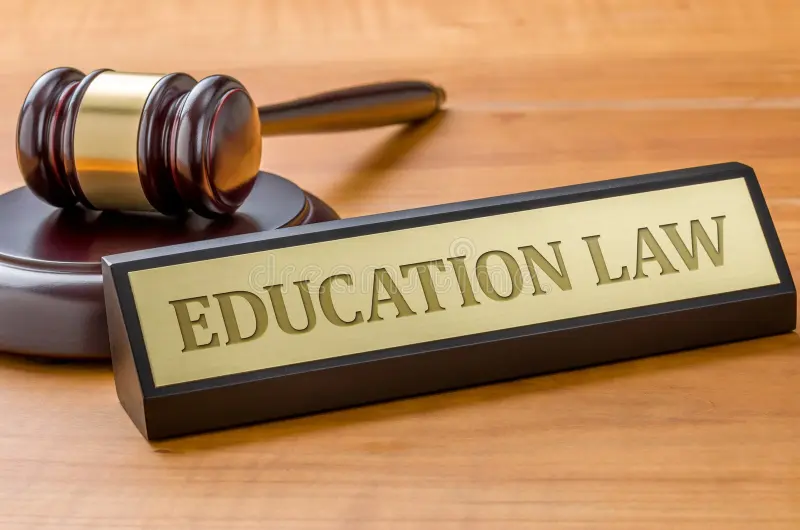1. What is Education Law?
Education Law covers legal rules related to:
-
School, college, and university administration
-
Student rights and teacher responsibilities
-
Compliance with government regulations
-
Academic freedom and institutional governance
-
Dispute resolution in educational matters
In India, Education Law is governed by:
-
Right of Children to Free and Compulsory Education Act (RTE), 2009
-
University Grants Commission (UGC) Act, 1956
-
National Education Policy (NEP) 2020 guidelines
-
State education acts and regulations
-
The Central Board of Secondary Education (CBSE) rules
-
Affiliation and accreditation laws
2. Key Areas of Education Law
2.1 Student Rights and Protection
-
Right to free and compulsory education (RTE Act)
-
Protection against discrimination and harassment
-
Right to appeal in cases of unfair assessment or expulsion
-
Privacy rights regarding student records and data
2.2 Teacher and Staff Regulations
-
Appointment, service conditions, and employment contracts
-
Protection against arbitrary termination or harassment
-
Compliance with qualifications and training requirements
2.3 School and College Administration
-
Registration and affiliation with regulatory bodies
-
Governance policies, academic standards, and accreditation
-
Safety and infrastructure compliance
-
Fee regulation and transparency for private institutions
2.4 Higher Education and University Compliance
-
UGC and AICTE guidelines for academic programs
-
Research ethics, intellectual property, and plagiarism policies
-
Faculty and student grievance mechanisms
2.5 Dispute Resolution in Education
-
Academic disputes, admissions, and scholarship issues
-
Teacher and staff employment disputes
-
Disciplinary actions and misconduct cases
-
Appeals to education tribunals or civil courts
3. Why Hire an Education Lawyer?
An education lawyer helps:
-
Ensure compliance with education regulations at all levels
-
Draft policies, contracts, and agreements for schools and colleges
-
Represent institutions or students in legal disputes
-
Advise on student rights, teacher employment, and administrative policies
-
Handle intellectual property, accreditation, and affiliation matters
4. Real-Life Example
Case: A private school faced legal action for allegedly violating RTE provisions regarding admission quotas.
Resolution: Legal counsel helped the school update admission policies, comply with RTE regulations, and successfully resolve the dispute without penalties.
5. Conclusion
Education Law is essential for ensuring fair practices, regulatory compliance, and the protection of students, teachers, and institutions. Whether it’s school administration, student rights, higher education compliance, or employment disputes,






